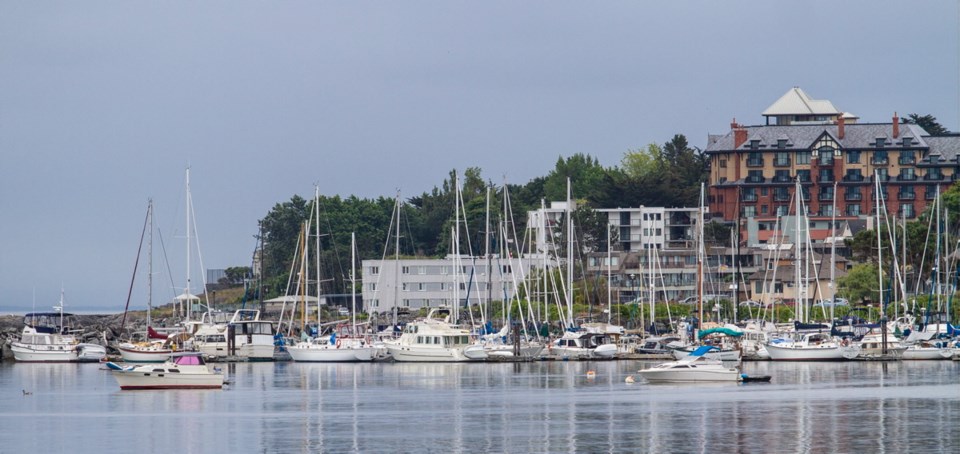VANCOUVER — A group of retired B.C. boaters have tracked what they believe are American pleasure craft into Canadian waters that are violating restrictions put in place because of the global COVID-19 pandemic.
The vessels — estimated to be as many as 100 in the past month — are stopping at marinas, sometimes for days, says George Creek, one of the retired boaters and a member of the Council of B.C. Yacht Clubs.
Much of the vessel traffic is coming from Washington state, particularly concerning because the state has a high rate of virus infection, said Creek.
The group of boaters has tracked the movement of the American vessels through the Marine Traffic website that provides vessels’ locations using an automatic vessel identification system. Some vessels don’t have this identification system, but reports have also been compiled from marinas and marine parks, said Creek.
An examination of the Marine Traffic website revelaed half a dozen vessels registered in the U.S. in harbours on the east coast of Vancouver Island.
“All you need is one vessel going into Lund, or Powell River, or up the coast, and getting ashore, and if they’re infected unknowingly, they can spread it in an instant,” said Creek.
The B.C. government has been particularly concerned about travel across the border from the U.S., but the focus has largely been on travel by land and air.
Last wee, Premier John Horgan tweeted: “Our government fought hard to get the [Canada-U.S.] border closed, and it needs to remain closed until the U.S. gets a handle on this pandemic. We cannot risk the progress we have made to keep British Columbians healthy and safe.”
A Canada-U.S. agreement to keep the border closed to non-essential travel has been extended a fourth time since March, until Aug. 20.
The Canada Border Services Agency, which has responsibility for all ports of entry in B.C., issued a warning in early June to boaters that crossing the border for recreation or tourism is prohibited because of the pandemic.
The agency said that boaters who enter Canada without reporting to the agency, including for the purpose of refuelling, may face severe penalties, including fines at minimum of $1,000, seizure of their vessels or criminal charges. By not complying with the current border entry restrictions, boaters could also face up to six months in prison.
Creek said the B.C. boaters have been turning their information on American vessels in Canadian waters over to the border service agency.
In response to questions, the agency provided no information on whether American vessels were being given permission to enter Canadian waters off the B.C. coast, and for what reason, or whether American boats were being found in Canadian waters improperly, how many and what had happened to them.
In a written response, agency senior spokeswoman Rebecca Purdy said it had no marine statistics of any kind it could share in this “extremely busy time.”
RCMP Cpl. Daniel Michaud said a joint RCMP-U.S. Coast Guard operation is using technology and patrols when potential offending vessels are identified.
The existing joint operation — called Shiprider — has recently intercepted U.S. vessels, issuing a fine under the Quarantine Act and ordering a return to U.S. waters.



